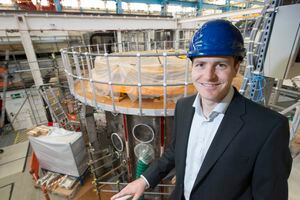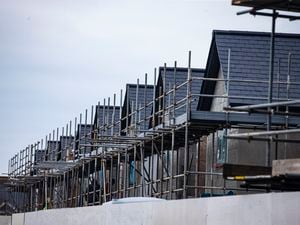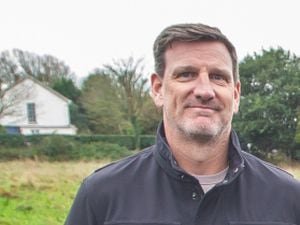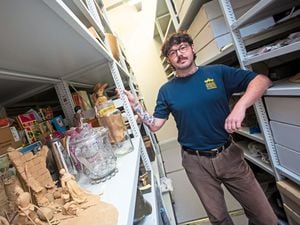‘Guernsey has the means to be a leader in clean energy’
Business editor Will Green spoke to leading energy expert Professor Ian Chapman who is joining the board of Guernsey Electricity as it looks to a more green future.

WHEN it comes to making and managing major change, you want the most qualified on your side.
And right now, there aren’t many challenges bigger than confronting climate change. So, it’s welcome news that Guernsey Electricity has appointed Professor Ian Chapman, one of the UK’s leading energy experts, as a non-executive director. Why? Because electricity, how it is produced and used, is central to decarbonisation.
Without putting too fine a point on it, Prof Chapman has some serious credentials. He is the chief executive officer of the UK Atomic Energy Authority, the UK’s largest research and innovation organisation in the energy sector with around 2,000 scientists and engineers. He was also born in Guernsey, so cares deeply for the island.
The global challenge ahead
‘I don’t think people realise how big the challenge is,’ begins Prof Chapman, using the UK target of net zero carbon emissions by 2050 as an example.
‘It’s irrelevant to think about it parochially. It makes no sense. It’s like Covid. You can’t find a vaccine for Guernsey and forget about the outside world, you need a vaccine for the whole world. You have to address net zero in the same way. It has to be a global solution.
‘If you look at the fossil fuels that we burn today. Just today. Don’t worry about future demand going up, it’s something like 11,000 mega tonnes of oil equivalent. 2050 is approximately 11,000 days away so in 11,000 days you’ve got to get rid of 11,000 mega tonnes of oil equivalent, which is one a day.
‘But what is that? A mega tonne of oil equivalent is like a nuclear power station or the single biggest offshore wind farm in the whole world. You have to do one of them every day for 30 years just to get rid of what we have today, let alone dealing with the electrification of transport or heating, or increasing demand because of economic prosperity in the developing world.’
Guernsey’s opportunity
So to this backdrop of the need for global action, what about Guernsey?
‘I think Guernsey is in a really interesting opportunity position,’ says Prof Chapman.
‘Not only does it need to do something, it is a small island community and therefore is affected by climate change, so it should be doing something proactive.
‘It also has big opportunities to make a difference. Because it’s small it’s much easier to electrify transport in a small economy, so you should. It does have natural resources that it should make the most of. You have an energy operator under state control, so you can make changes about how the grid looks, where the energy comes from, how the market looks and how the regulator works.
‘It’s not been chopped up like is true in lots of other states, certainly true in the UK. [There] it’s been thrown out to the wind and gone out to capitalism and now it’s quite broken. It will be quite hard to unpick all of that. That’s not the case in Guernsey. You can make changes in a slightly easier way.’
Being a leader in clean energy also offers opportunities for the finance sector, he says, and the island’s agility is being able to transform its economy which has meant change is more than achievable.
‘If the island is visibly seen to be doing something bold and ambitious in addressing clean energy then with it might come opportunities for the finance sector in the green and clean energy space.
‘I am proud as an islander, how resilient and adaptable the island economy has been. If you go back a lifetime it was all tourism. Two lifetimes ago it was tomatoes. And today it’s all finance. In two generations it has completely changed its economy twice – and so you can do it again over a short period of time.’
Infrastructure to drive change
We also talk about some of the infrastructure needed to power a more green future. On wind turbines, Prof Chapman says offshore wind could be harnessed for energy – but critically it would need careful thought.
‘Putting up two wind turbines for Guernsey doesn’t make sense.
‘You’d be better off putting two wind turbines into a wind farm somewhere else and a cable because the cost is prohibitive. But you could put a number of wind turbines in and then sell to Jersey. You could do that with France or the south coast of England.’
On electrification of transport, the grid can be adapted to cope with this change over a period of time.
‘It’s down to that walk the walk. If it’s something you believe in, you do it. It’s absolutely within the economic wherewithal of the island to do that.’
Prof Chapman also notes that most new technology in the energy sector requires incentivisation when asked about whether there should be subsidies to help people switch to electric vehicles. That’s a policy decision, he continues, and that over time it will become cheaper to run EVs anyway. ‘When you look at full-life costs, it’s almost at that tipping point.’
When it comes to energy resilience, he says laying a second direct power cable to France to connect to the European grid is the best option. Consideration of what batteries are needed to balance micro-renewables on-island, such as solar panels, will also be needed.
Bringing his experience to the job at hand
‘I understand big energy infrastructure and things like laying a cable means and changing all the transformers in the island, new infrastructure. Hopefully I can help with some of that,’ says the energy expert. I also get quite involved in UK energy policy. I’m very interested in helping with that transition modelling, and policy and strategy work, which is my background. I think I can help Guernsey as it goes through that energy transition.’





